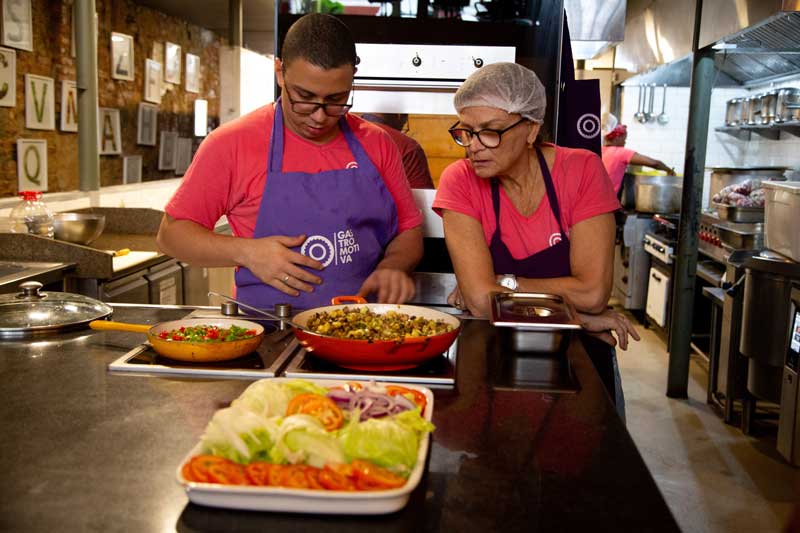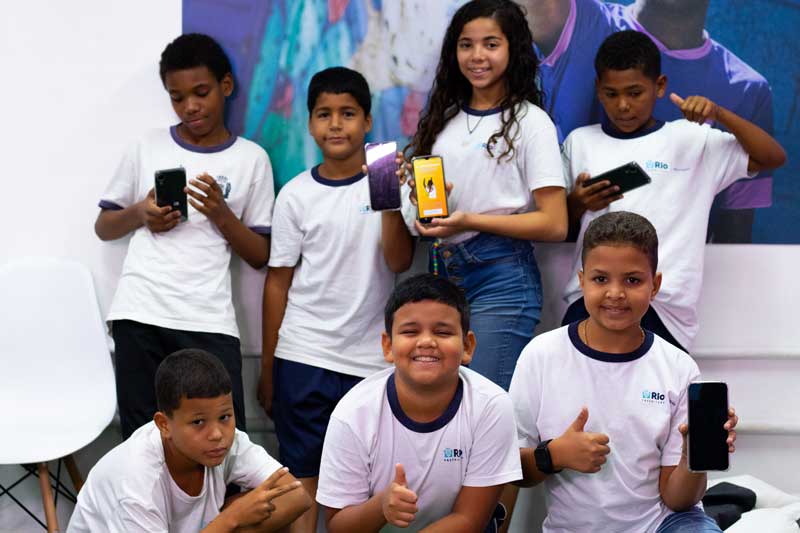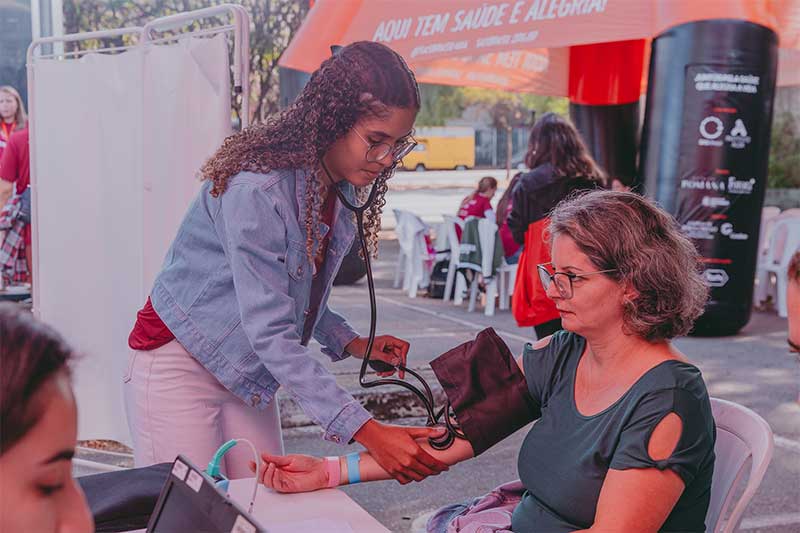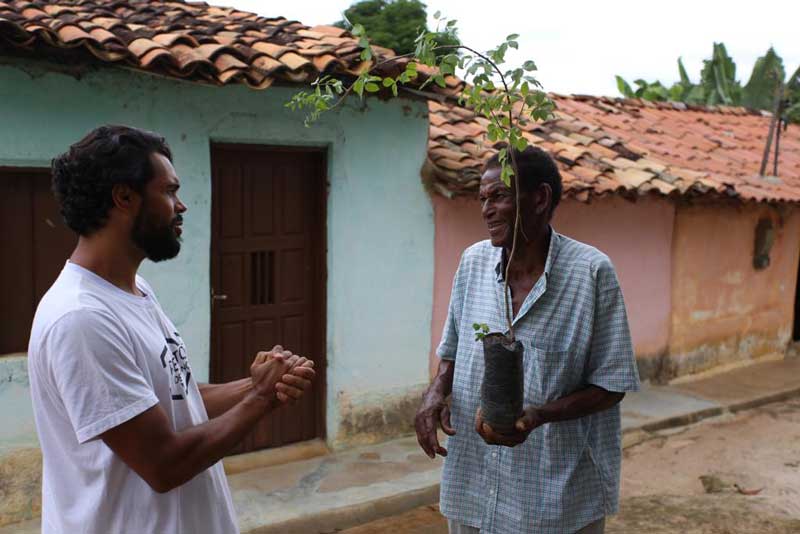The Alok Institute facilitated the dialogue for a new partnership between The Church of Jesus Christ of Latter-Day Saints and the NGO Gastromotiva, which led to a donation of kitchen equipment to Gastromotiva. This donation enhances the infrastructure of the Cozinhas Solidárias (Solidary Kitchens) and Refettorio Gastromotiva, allowing for an 18% increase in food distribution for individuals facing food insecurity. The donated equipment includes a 6-burner industrial stove, convection oven, refrigerator, freezer, microwave, industrial blender, and more.
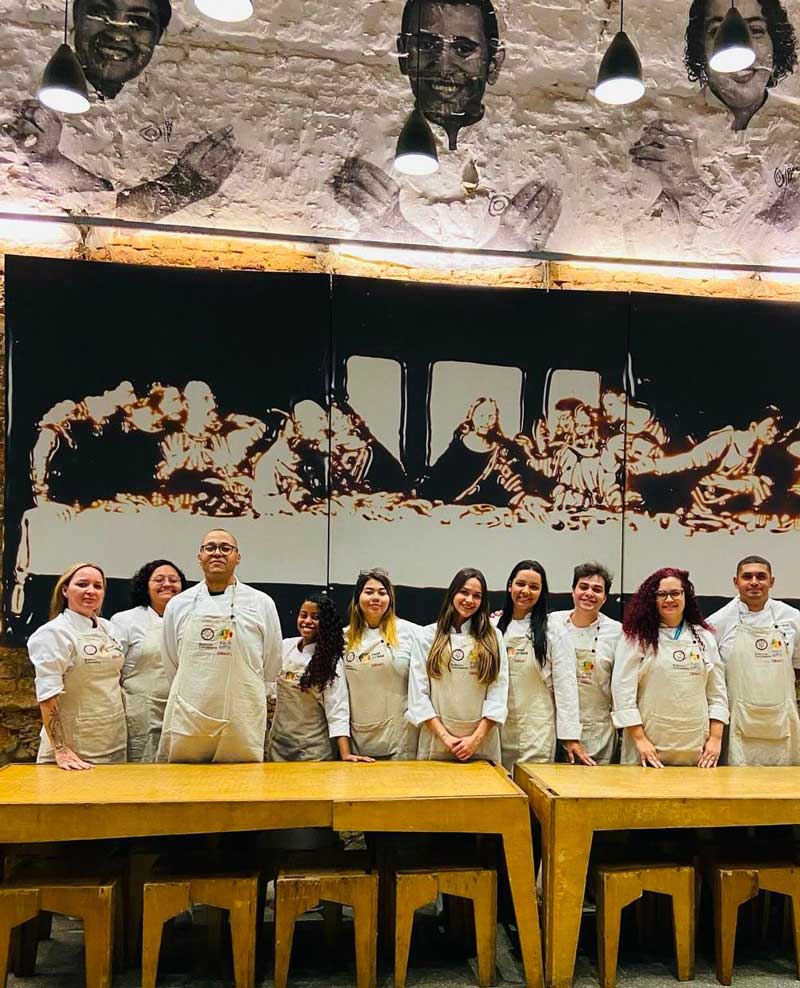
As a result of this equipment, the number of meals served to those in need will rise significantly. Before the donation, the Refettorio served 31,680 meals yearly, while the Cozinhas Solidárias provided 245,400 meals annually. In 2024, the Refettorio served 61,729 meals, benefiting 1,465 individuals, and the Cozinhas Solidárias prepared 222,974 meals, reaching 5,291 people.
Additionally, we supported the Encontro Comunidade Gastromotiva – A Cozinha como Pólo Transformador de Territórios (Gastromotiva Community Meeting – The Kitchen as a Transformative Hub for Territories) in Rio de Janeiro. This event facilitated the exchange of knowledge and discussions on topics related to sustainable development, social gastronomy, and productive inclusion, with participation from 300 individuals.
With this donation, The Church of Jesus Christ of Latter-Day Saints has joined other partners of Gastromotiva, significantly improving the infrastructure of the Solidary Kitchens and Refettorio Gastromotiva. This collaboration enhances the delivery of solidarity meals and promotes activities aimed at achieving medium-term financial sustainability.
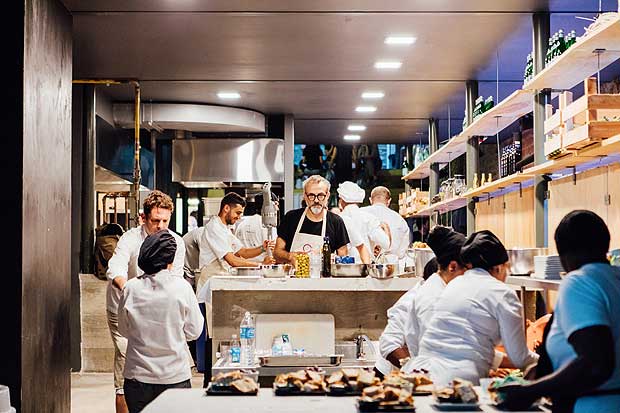
The partnership supports:
- Solidarity Kitchen Program – Launched in March 2020, the project focuses on developing community-based kitchens, with the understanding that social work combined with education are fundamental mechanisms for expanding social participation, qualifying community leaders, and modeling social impact initiatives in the food sector. At least 9 (nine) solidarity kitchens in Manaus, São Paulo, Curitiba, Rio de Janeiro, and Salvador will benefit from it.
The list of donated equipment for Solidarity Kitchens includes industrial pasta strainers, organizational boxes, industrial vegetable dryers, stainless steel bowl sets, 6 polyethylene cutting boards, GN sets, 6-burner industrial stoves, convection ovens, refrigerators and freezers, microwaves, industrial blenders, industrial food processors, professional scales, service pans, wok fryers, thermal chafing dishes, stand mixers, industrial axial exhaust fans, Chef Kit (10 pieces), and folding tables. - Reffetorio Gastromotiva – Based on four strategic areas of action where food is the driving force to understand social relations and gastronomy is a key tool for empowering individuals and the local community, Reffetorio Gastromotiva is a restaurant-school that works to combat food waste, promote the right to adequate food, provide technical training linked to citizenship, and commit to community development around the project.
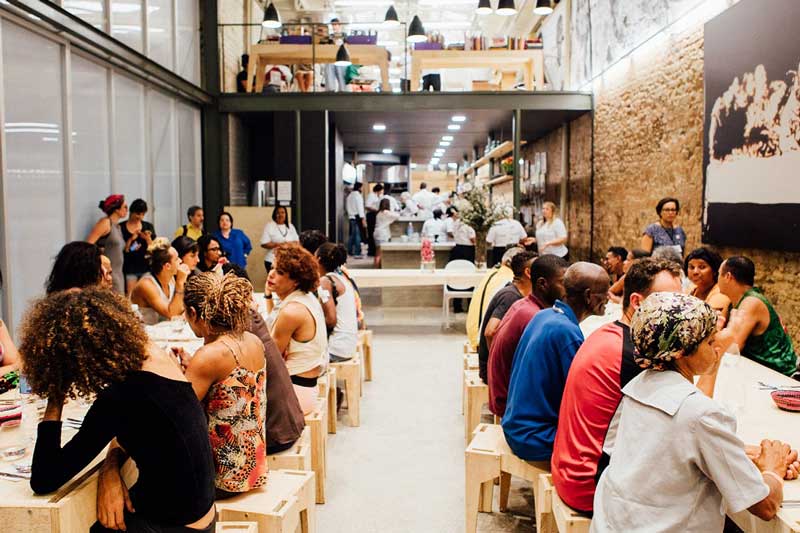
Reffetorio Gastromotiva has already contributed to rescuing over 500 tons of food and provided more than 1.98 million zero-waste meals through service in the city’s downtown area.
The restaurant will receive an increase in utensils and equipment, along with a kitchen renovation, enabling daily solidarity meal delivery, development of educational activities, and piloting restaurant-school activities focused on medium-term financial sustainability.
The renovation will include the kitchen’s adaptation, which may involve replacing the cold storage chamber and receiving a list of equipment that includes: aluminum industrial pasta strainers, organizational boxes, stainless steel bowl sets, 6 polyethylene cutting boards, 6-burner industrial stoves, EOS 510-liter vertical display freezers, low-speed 6/8-liter stainless steel industrial blenders, industrial food processors, triple-bottom stainless steel cookware, wooden service trays, plates, planetary stand mixers, drink dispensers, and a Chef Kit (10 pieces).
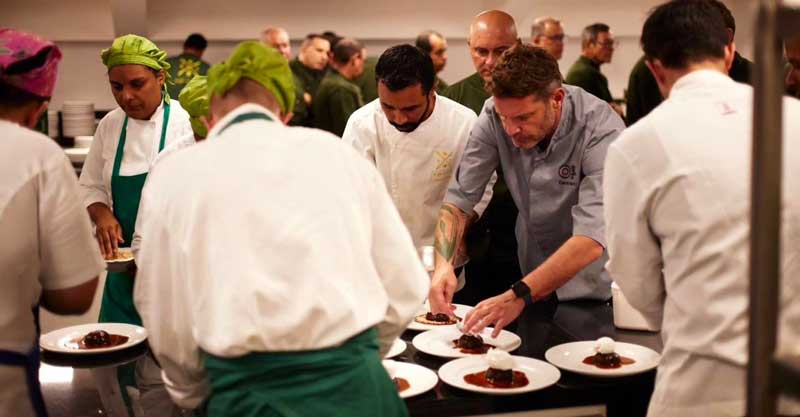
Gastromotiva
The organization is part of a system focused on guaranteeing Food and Nutritional Security (SAN) and recognizes that regular and permanent access to quality food should occur sustainably from an environmental, economic, and social perspective. Since its founding, Gastromotiva has been working to combat social inequality, unemployment, and hunger, seeing them as priority agendas that require the modeling of social technologies to promote equitable livelihoods. Therefore, it has opted for the construction of inclusive professional qualification methodologies tied to income generation and improvements in individuals’ quality of life, believing that productive inclusion and income generation are strong indicators of access to citizenship and, consequently, an escape from poverty.
Gastromotiva views the kitchen as a means for socially and environmentally responsible professional practice by creating service hubs for the population in terms of food assistance, which also serve as centers for professional training and improvement. Reffetorio Gastromotiva, inaugurated in Rio de Janeiro in 2016 during the Olympic and Paralympic Games, is a result of the partnership between Gastromotiva, the NGO Food for Soul, founded by renowned Italian chef Massimo Bottura, and food journalist Alexandra Forbes.
The organization uses a Business Intelligence (BI) tool to help monitor the impact generated by the Solidarity Kitchens Program and Reffetorio Gastromotiva.
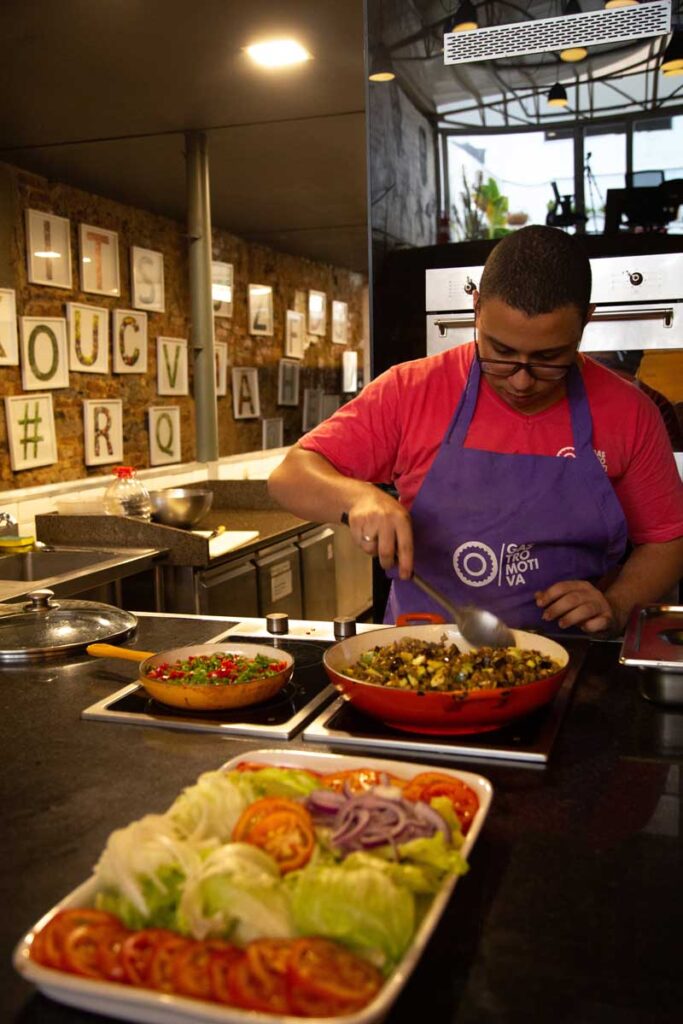
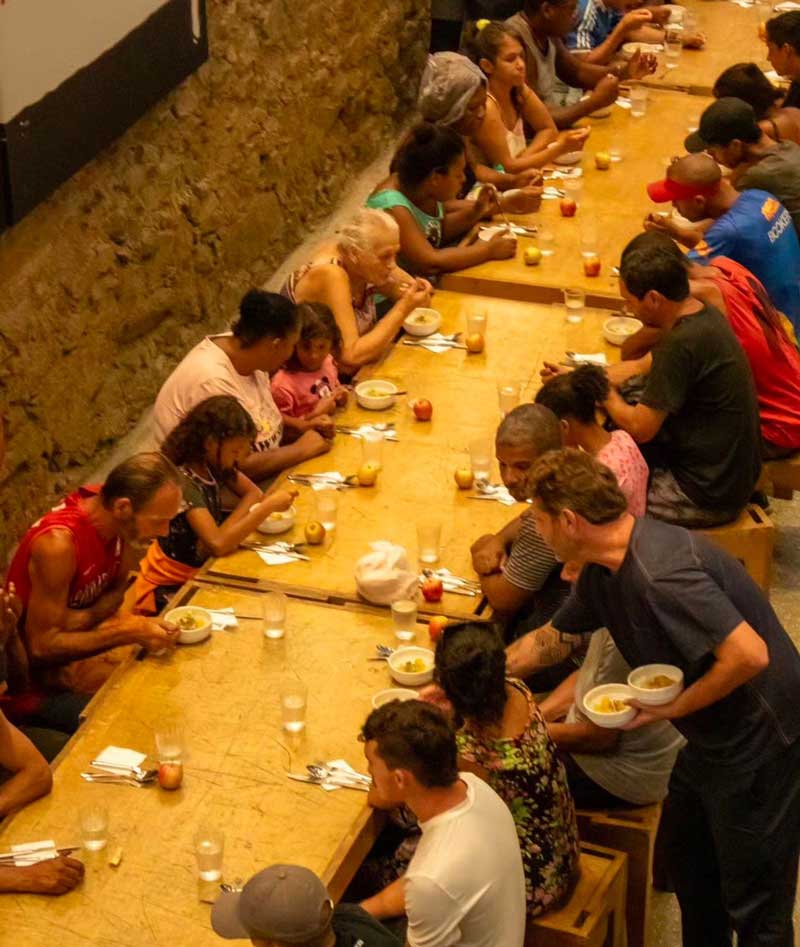
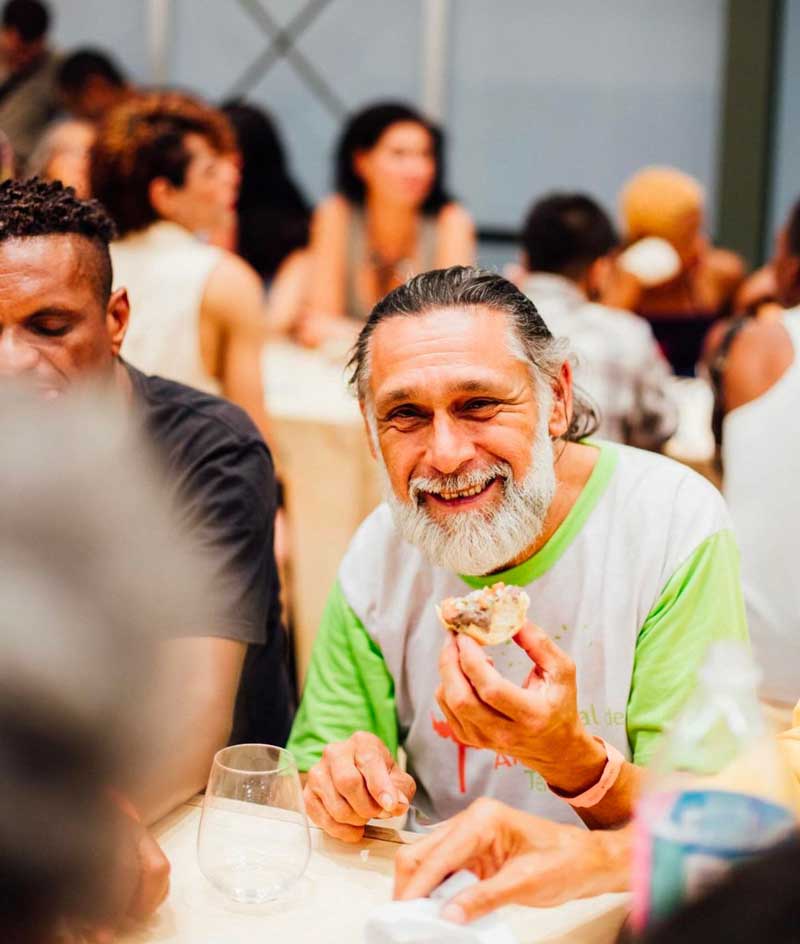
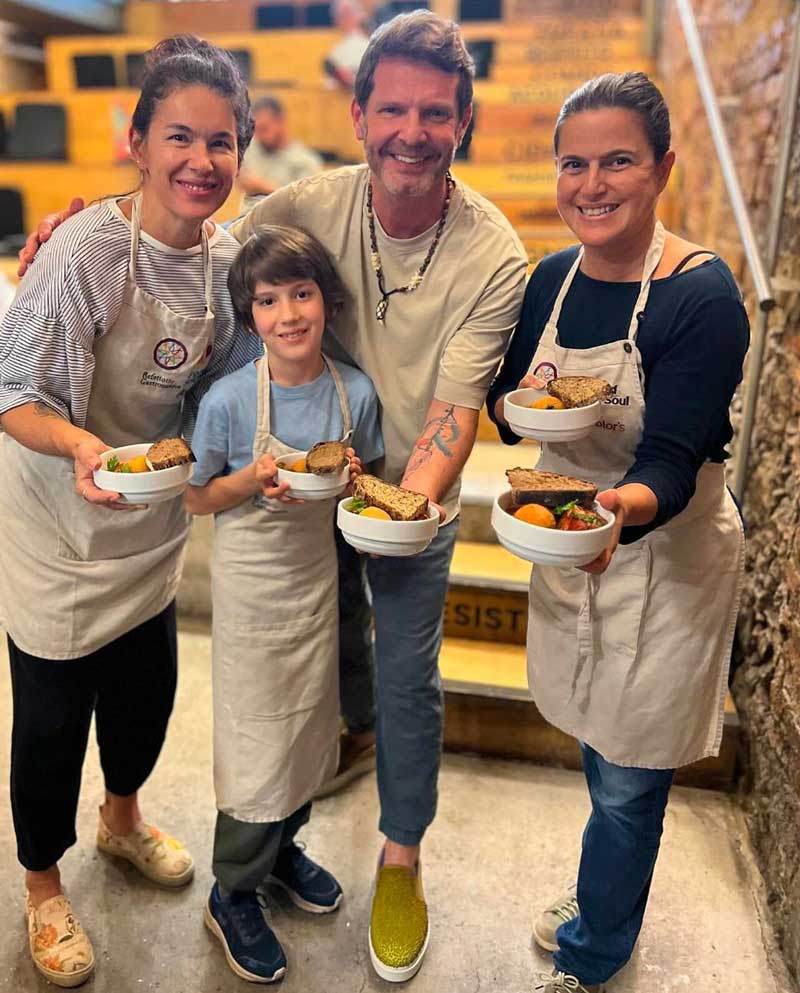
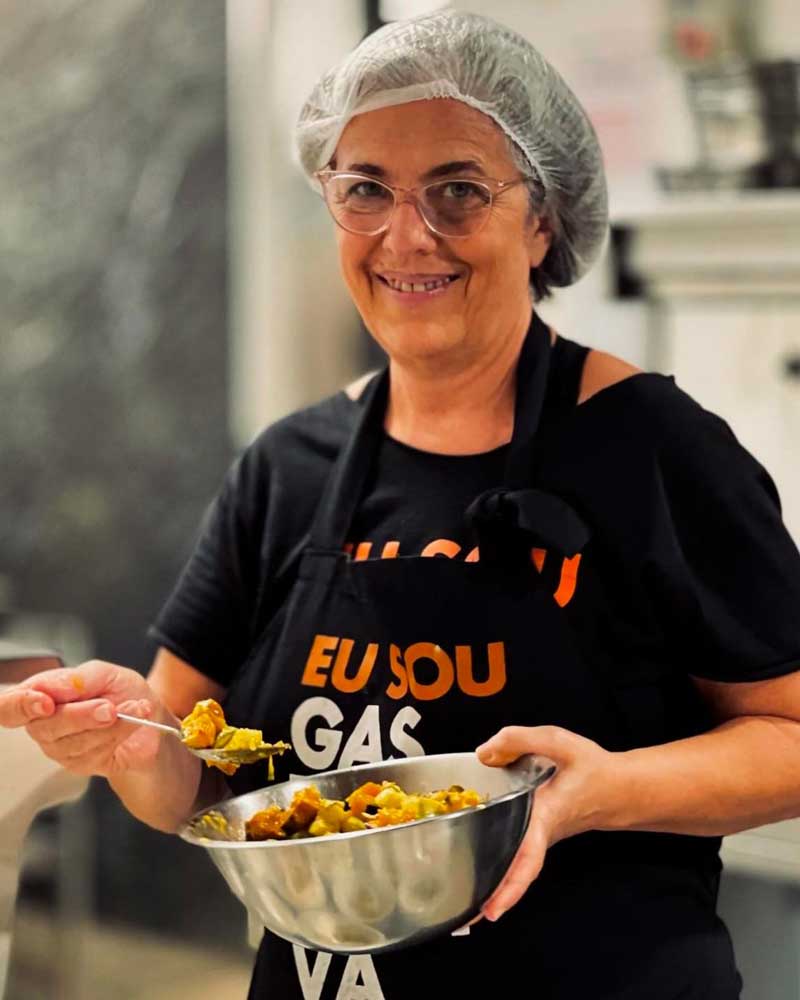
Learn more and Support you too:
See other supported projects:
The Church of Jesus Christ of Latter-Day Saints
As followers of Jesus Christ, members of The Church of Jesus Christ of Latter-Day Saints are committed by covenant to live the two great commandments: love God and love your neighbor. They follow Jesus Christ’s call to feed the hungry, give drink to the thirsty, welcome the stranger, clothe the naked, and visit the sick and afflicted.
The individual and church-wide efforts to care for those in need have been essential to their mission since its inception. In 1842, the Relief Society was organized with the responsibility of caring for the poor and ministering to their needs. In 1936, the Church created the welfare program to help care for needy members and strengthen their ability to become self-reliant. In 1985, the Church’s global humanitarian program was formally established.
Church members seek out those in need and assist all of God’s children, regardless of religious affiliation, race, or nationality. The Church, its members, and friends combine donations with volunteer efforts to alleviate suffering and build self-reliance worldwide.
Prophet and President of the Church, Russell M. Nelson, stated, “Those who desire to be called the Lord’s people are ‘willing to bear one another’s burdens… [to] mourn with those who mourn; …and comfort those who stand in need of comfort.’”

